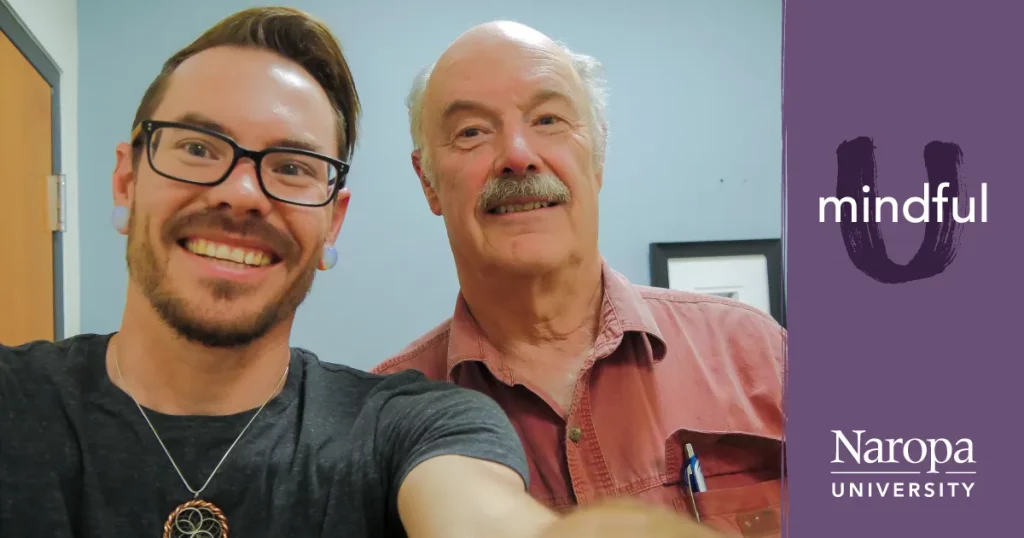
The newest episode of our podcast, ‘Mindful U at Naropa University,’ is out on iTunes, Spotify, Stitcher, and Fireside now! We are happy to announce this week’s episode features John Cobb, former President of Naropa University (1993-2003).
 John Cobb: A Contemplative Approach to Social Justice
John Cobb: A Contemplative Approach to Social Justice
“Look at statistics about our civic literacy in this country–we’re in the grip of civic illiteracy largely because not all high schools and colleges are doing enough, though some might be. Not doing enough to make civic literacy actually enough of the required general education of the students. As a result, students have largely turned away–the humanities, which includes history and civics, have been demeaned. We’ve commodified higher education in such a way that we’ve actually monetized it. This is not a liberal or conservative issue–both sides are at fault in the continuing removal of civic education and history from high school and college curricula. Statistically, student participation in history majors, history departments goes down about 10 percent a year or every two years.
Particularly at this point in our history, when everyone has an opinion about our history and what it means, and access to more information, opinions, viewpoints, and propaganda than ever before. We’re politicizing history, which is why it’s a lot easier for colleges and high schools to drop the subjects altogether, rather than to try and sort through it. Naropa’s founder talked a great deal about creating an enlightened society, and he thought that Naropa should model that society institutionally. But he also thought Naropa should graduate students who would long for a better world, and who were willing to put their bodies, speech, and minds on the line for that world. This is why we’re here at Naropa, and why we’re committed to teaching a contemplative approach to social justice.”
John Whitehouse Cobb graduated from Harvard College in 1966 and Columbia Law School in 1969. He worked as a VISTA lawyer with Colorado Rural Legal Services, serving migrant farm workers and low-income groups. He continued to work in the public sector as a staff attorney for DNA, the Navajo Legal Aid Program in Shiprock, New Mexico, and later as Director of Litigation and Training for Pine Tree Legal Assistance in Bangor, ME (1976-80). Returning to Colorado, he served as the Director of the Colorado Coalition of Legal Services Programs and Western Regional Training Center in Denver from 1980–83 and was a founder of the Legal Aid Foundation of Colorado.
He then was in private practice in Boulder for ten years, until he was appointed President of Naropa University in January, 1993. He served in that capacity until June, 2003, presiding during a time of significant student growth and expansion of programs and physical plant. The Naropa Institute became Naropa University during his tenure. He served on Naropa’s Board of Trustees from 1985 to 2003.
He also designed and taught a course in leadership: “The Art and Ethic of Leadership” in Naropa’s MA Resilient Leadership Program, and “Freedom is Just Another Word: The Evolution of the Bill of Rights” in the college.



